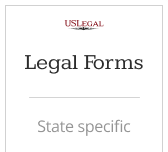Full question:
I have a sign-language interpreting business. I was interpreting for a patient in Good Samaritan Hospital in Los Angeles. He was transferred to a hospice. His IPA was paying for his interpreting. The day he was transferred, his new insurance provider, Physicians Care, called and said to go ahead and interpret at the hospice center. They said to fax the paperwork. I did, but they didn't answer. That night at the hospice center, the patient signed consent forms. But he added 'I require a sign language interpreter' to the forms. Wells House hospice nurse signed the forms. But when I turned in the invoice for 30 days of interpreting for $6200 to Physicians Care, they said he is not covered and that they never had an arrangement with me, and that Wells House has to pay. So I sent the invoice to Wells House Hospice, and they said he doesn't need an interpreter. The patient continues to insist on an interpreter, but they won't pay me or provide another interpreter. The patient is frustrated and dying. Physicians Care said they I can re-submit the claim, but that will take months. Meanwhile he is dying and no interpreter, even though he asks for one according to the Americans With Disabilities Act of 1990. My question is who should pay? Can they keep on giving me the run-around while the patient is dying? He is sad and dying and doesn't understand his doctors or nurses.
- Category: Civil Rights
- Date:
- State: California
Answer:
Private businesses that provide goods or services to the public are called public accommodations in the ADA. The ADA establishes requirements for twelve categories of public accommodations, including stores and shops, restaurants and bars, service establishments, theaters, hotels, recreation facilities, private museums and schools and others. Nearly all types of private businesses that serve the public are included in the categories, regardless of size.
A public accommodation is a private entity that owns, operates, leases, or leases to, a place of public accommodation. Places of public accommodation include a wide range of entities, such as hospitals. Private clubs and religious organizations are exempt from the ADA's title III requirements for public accommodations.
The method of communication and the services or aids the hospital must provide will vary depending upon the abilities of the person who is deaf or hard of hearing and on the complexity and nature of the communications that are required. Generally, a hospital must provide an interpreter to a patent if required to ensure effective treatment. Volunteer, non-profit organizations whose services are offered free-of-charge are not obliged to pay for interpretation services if the cost would cause undue hardship. When evaluating whether undue hardship would be imposed, factors to be considered, among other, may include:
1. the nature and cost of the accommodation
2. the overall financial resources of the hospice
3. the impact on the ability of other employees to perform their duties and the impact on the ability to conduct business
Unfortunately, the answer isn't clear. Whether the insurer is responsible to be is a matter of contract law and the coverage and exclusion terms contained in the contract. Whether the hospice must pay will depend on the nature of the organization and whether they can prove providing an interpreter would constitute and undue hardship that would harm the effective operation of the organzation. I suggest contacting your local ombudsman, legislator, or attorney general's offcie.
Please see the information at the following links:
http://www.aging.ca.gov/programs/ombudsman_contacts.asp
http://www.hospicepatients.org/cmplnt.html
http://www.ada.gov/hospcombr.htm
http://definitions.uslegal.com/d/discrimination/
http://definitions.uslegal.com/a/americans-with-disabilities-act/
http://lawdigest.uslegal.com/americans-with-disabilities-act/public-facility-accommodations/
http://definitions.uslegal.com/i/injunctive-relief/
http://www.captions.com/hospital.html
Please see the forms at the following links:
http://www.uslegalforms.com/ca/CA-MC-410.htm
http://www.uslegalforms.com/us/US-000266.htm
http://www.uslegalforms.com/ca/CA-5008-KL.htm
This content is for informational purposes only and is not legal advice. Legal statutes mentioned reflect the law at the time the content was written and may no longer be current. Always verify the latest version of the law before relying on it.


